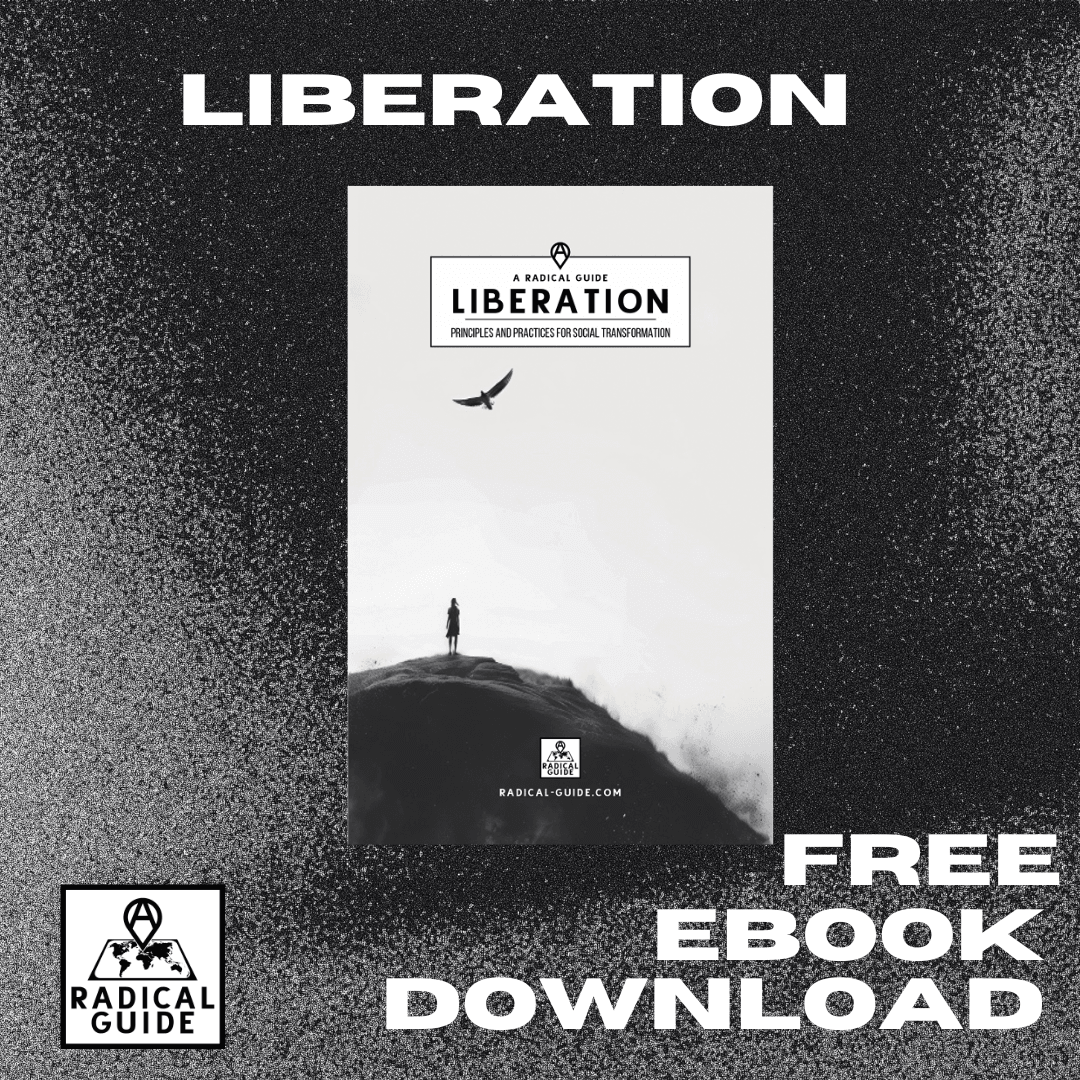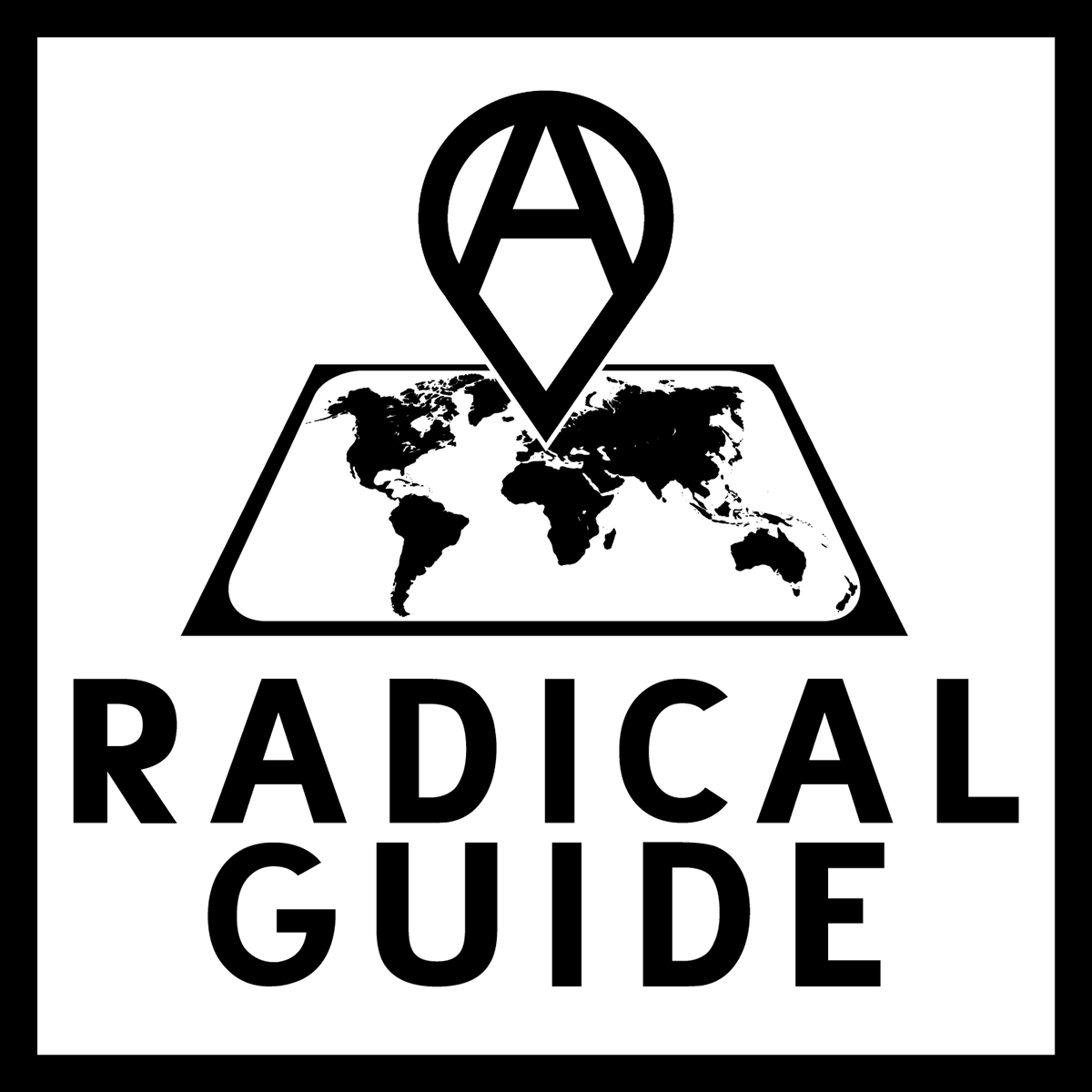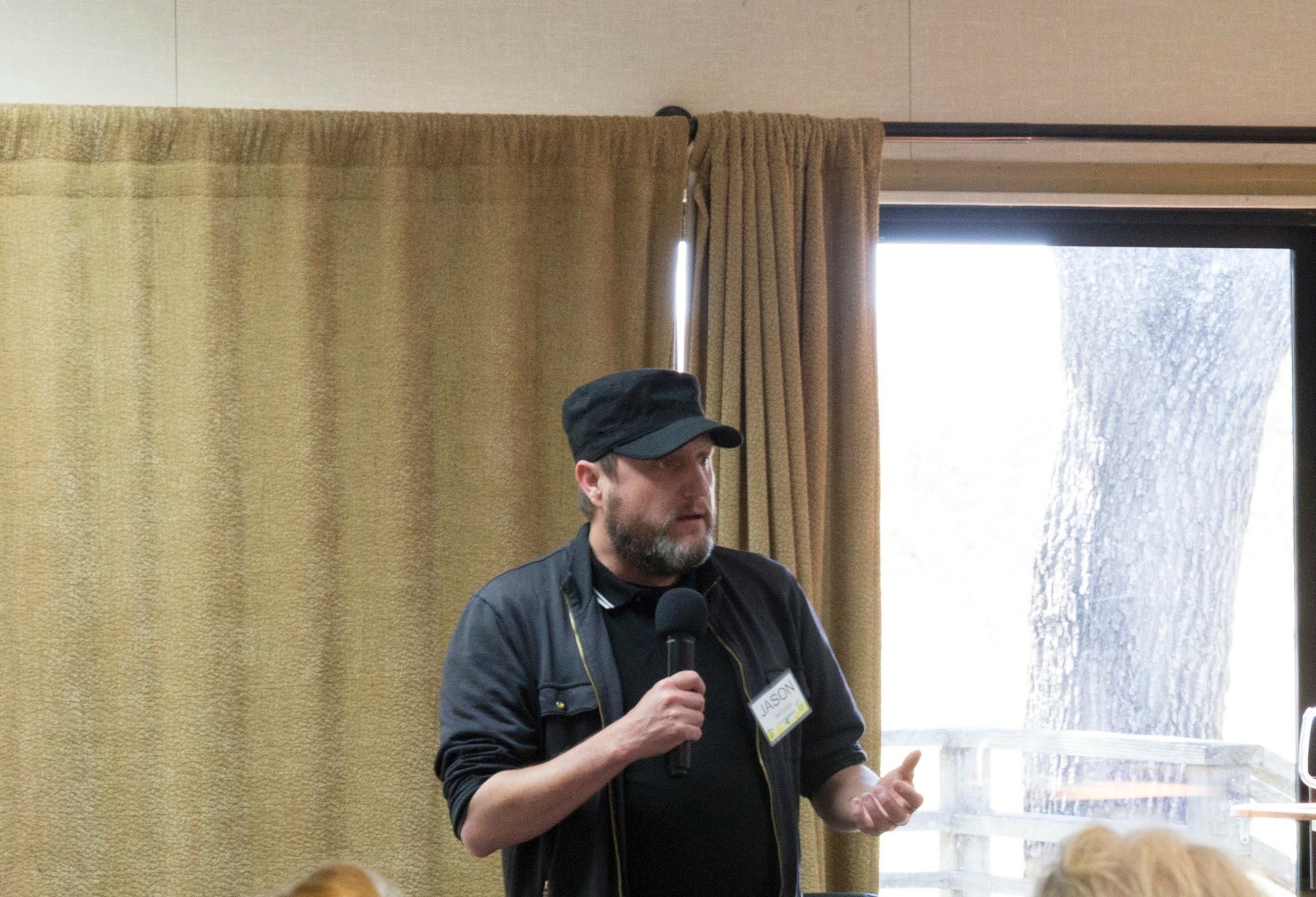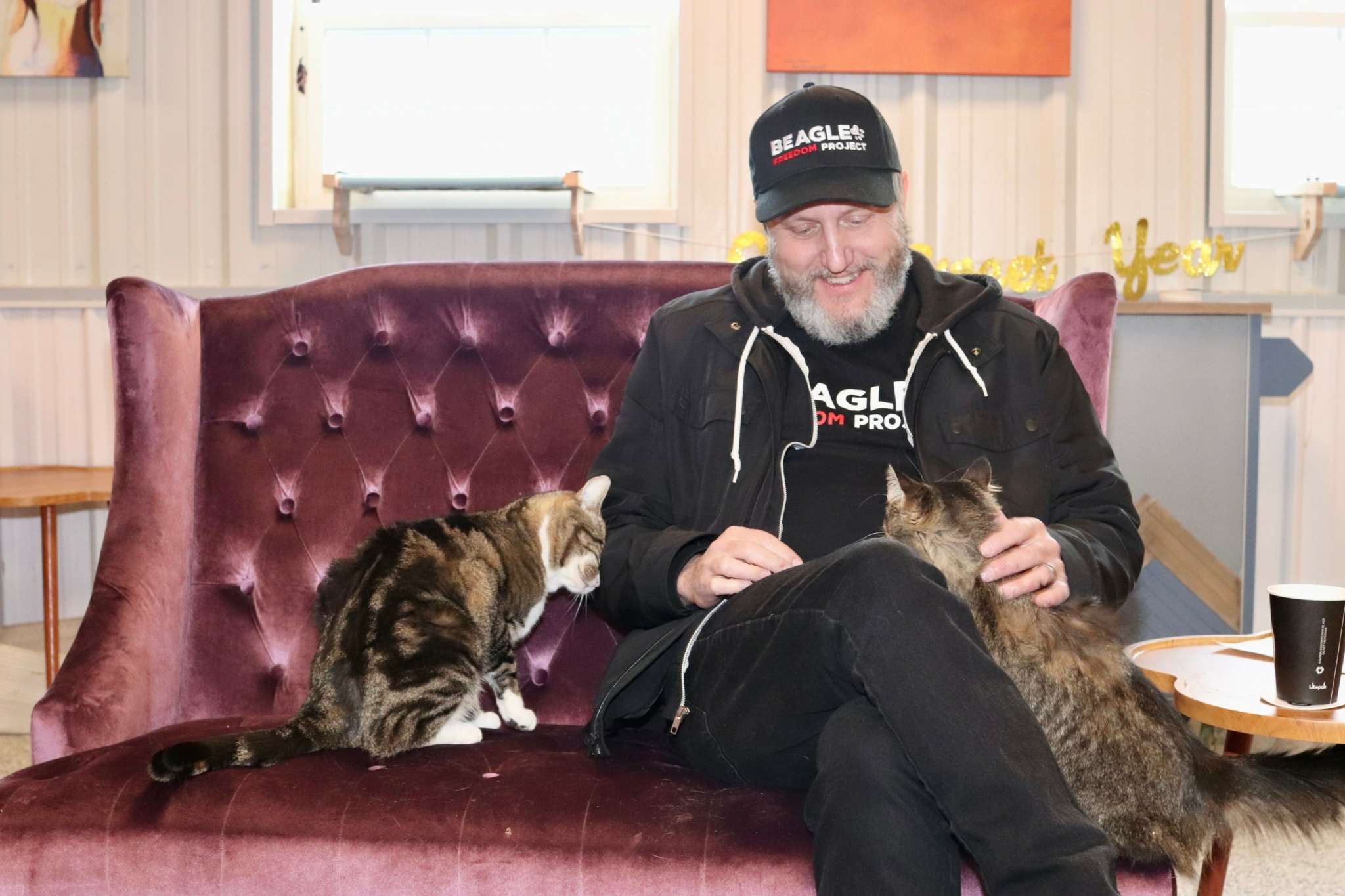Alright – so today we’ve got the honor of introducing you to Jason Bayless. We think you’ll enjoy our conversation, we’ve shared it below.
Alright, Jason thanks for taking the time to share your stories and insights with us today. So let’s jump to your mission – what’s the backstory behind how you developed the mission that drives your brand?
A Radical Guide is a mission-driven organization and 501(c)(3) nonprofit created from a deeply personal need to confront systemic violence and support those already building alternatives. Our mission is to connect, amplify, and unite liberation movements by preserving their histories, amplifying their present struggles, and fostering spaces for education, dialogue, and collective action. We support grassroots efforts to advance justice, autonomy, and collective liberation through educational resources, events, financial solidarity, and connection-building.
Our mission is rooted in lived experience. My path to founding A Radical Guide began in the rural countryside of Texas, surrounded by animals and nature. My family raised cows, pigs, and chickens, and my closest companion was a horse named George. At the time, I didn’t question the contradiction between caring deeply for these animals and knowing some would end up on our dinner table. That experience planted the first seeds of awareness, showing how violence and contradiction are woven into everyday life.
Years later, witnessing domestic violence firsthand shattered my sense of safety and made it impossible to ignore the normalized violence that surrounds us, both physical and structural. It marked a turning point. I began asking why violence is so widely accepted in our society, from our homes to our economic systems, from wars fought in our names to the exploitation of both people and animals. The urgency of confronting these interconnected forms of violence became intensely personal and undeniably clear.
These experiences deepened my commitment to radicalism—not just as resistance, but as the active creation of alternatives. Following the tradition articulated by activist and scholar Angela Davis, who describes radicalism as “grasping things at the root,” this approach became central to my understanding. For me, it means dismantling oppressive systems like capitalism, patriarchy, white supremacy, and state power—and building autonomous structures grounded in mutual aid, collective freedom, and solidarity. It became clear that while resisting oppression is necessary, resistance alone isn’t enough—we also have to construct tangible pathways toward liberation.
A Radical Guide’s core values emerged from traditions of anarchism, mutual aid, and anti-fascism. Anarchism offers a vision of decentralized power and horizontal organization, emphasizing collective autonomy over hierarchical control. Mutual aid, practiced for millennia in many Indigenous communities and later articulated by thinkers like Peter Kropotkin, provides practical ways for communities to meet needs outside state and corporate systems, fostering care and cooperation instead of competition. Anti-fascist organizing underscores the need for direct action and community self-defense in the face of rising authoritarianism and white supremacy.
The idea to build A Radical Guide as a resource hub came while I stood outside a radical bookstore in Paris—full of revolutionary ideas, yet unnoticed by passersby. That moment clarified something for me: spaces like these—bookstores, community centers, squats—hold immense potential, but often remain isolated or hard to find. We needed an accessible global directory to connect them, amplify radical voices, and support meaningful collaboration and mutual aid across movements.
This realization directly shaped what A Radical Guide is today. For me, it represents a concrete commitment to confronting the violence and oppression I first witnessed in my youth. It’s a platform for building real-world alternatives and strengthening global solidarity. A Radical Guide connects theory and practice, linking isolated pockets of resistance into a global collective liberation and autonomy network. Every day, through connections with people around the world, it reaffirms my belief that radical change is not only possible—it’s already underway, and we can build it together.

Jason, love having you share your insights with us. Before we ask you more questions, maybe you can take a moment to introduce yourself to our readers who might have missed our earlier conversations?
I’m Jason Bayless, founder of A Radical Guide—a mission-driven 501(c)(3) nonprofit that connects, amplifies, and unites liberation movements worldwide. My work is grounded in a lifetime of confronting systemic violence and a deep commitment to supporting grassroots alternatives rooted in mutual aid, collective autonomy, and anti-authoritarian struggle.
My path into this work wasn’t through a traditional nonprofit track or academic discipline—it was shaped by lived experience. I grew up in rural Texas, where contradictions were everywhere: compassion alongside exploitation, connection alongside violence. Those early experiences led me to question the systems we’re taught to accept and seek out the people and movements not only resisting them, but building new ones.
A Radical Guide started with a simple observation: radical spaces—bookstores, community centers, squats, community gardens—existed everywhere, but were often disconnected, under-resourced, or overlooked. I saw the need for a platform to help people find these spaces, learn from them, support them, and connect. What began as an online directory quickly grew into something more expansive.
Today, A Radical Guide offers:
A global directory of radical spaces, organizations, and projects
Original publications exploring anarchism, mutual aid, anti-fascism, and radical history
Online courses and educational tools that prioritize liberation, not institutional gatekeeping
A Mutual Aid Fund that provides direct financial support to grassroots organizers
Media projects, including podcasts, video content, and storytelling campaigns that lift up the work of radical communities worldwide
What sets A Radical Guide apart is that we don’t center ourselves—we center the movements, histories, and people already doing the work. We’re not a movement; we’re a resource hub and community builder. We don’t offer top-down solutions; we offer tools, visibility, and support for bottom-up resistance.
I’m most proud of the fact that A Radical Guide has helped people around the world feel less isolated in their struggles. That sense of connection is reflected in the projects we’ve supported and co-created across borders and movements. We’re co-producing a documentary with the Local Autonomous Network (LAN) in the Philippines, supported studio sessions for the eco-anarchist band Hukbong Lumpen, and raised funds for Feral Crust’s land-based anarchist project in Davao. We’ve hosted and co-produced the agitated. podcast, supported organizers resisting the Ahunah Hydropower Dam Project in Laguna, and launched our Mutual Aid General Fund to support grassroots groups and organizers directly. These are just a few ways we’ve stood in solidarity with movements advancing justice, resistance, and liberation on their terms.
For folks just learning about us, I want them to know this: the systems we live under are not natural or inevitable. And you’re not alone if you feel like something is deeply wrong. A Radical Guide exists to connect people who are imagining and building something better—and to remind all of us that we have the tools and the history to shape that future together.

Any advice for managing a team?
When people ask how we manage a team or maintain morale, we often find the assumptions behind the question don’t reflect how we operate. At A Radical Guide, we don’t see ourselves as a team to be “managed” but as a collective working in solidarity toward shared goals. That shift in framing matters—not just for morale but also for building trust, autonomy, and sustainability in our work.
Rather than relying on hierarchies that place one person in control, we focus on building relationships rooted in mutual respect, trust, and shared purpose. These relationships aren’t shaped by authority but by accountability, care, and a commitment to that shared purpose.
From that foundation, morale doesn’t need to be engineered. It grows naturally when people have ownership over their work, feel supported instead of surveilled, and know their input shapes direction. Collective responsibility and care—not control—create the conditions for people to stay engaged.
This means prioritizing clear communication, mutual accountability, and regular check-ins about capacity, boundaries, and well-being. When burnout happens, we don’t see it as a personal failure. It’s often a sign of deeper imbalance or unmet needs, so we treat care as foundational, not an afterthought.
We also understand that mistakes happen, deadlines slip, and life interrupts. Our response isn’t punishment or correction—it’s support and connection. Accountability doesn’t have to mean blame. It can mean recognizing harm or disruption, naming it, and asking: What do you need, and how can we move through this together? That kind of accountability builds trust and long-term sustainability, not fear or competition.
We regularly return to key questions that help keep us grounded:
Are we honoring each person’s autonomy and lived experience?
Are we distributing power, or concentrating it?
Are we creating space for disagreement, discussion, and shared direction?
If the answer is no, that’s a signal to pause, listen, and adjust.
The goal isn’t to build a perfectly efficient team—it’s to build a community where people can show up fully, contribute meaningfully, and grow together while working toward shared goals.

What else should we know about how you took your side hustle and scaled it up into what it is today?
A Radical Guide didn’t start as a business or a nonprofit. It began in 2018 as a side project built on nights and weekends, guided by a simple question: What if there were a way to connect the radical spaces many of us had encountered—bookstores, community centers, squats, gardens, and mutual aid projects—into one accessible platform?
At the time, I worked full-time elsewhere and used evenings to map locations, reach out to collectives, and share the histories of movements often hidden or misrepresented. The goal wasn’t to build an organization in the formal sense—it was to create connection and visibility for those already doing the work.
Over time, that effort grew. What started as a directory expanded to include interviews with organizers, original publications, and direct collaborations with groups on the ground. From publishing the Liberation Journal to raising funds for anarchist land projects in the Philippines, A Radical Guide became a space to amplify, support, and connect movements globally.
For several years, A Radical Guide remained entirely volunteer-driven. As visibility grew, so did the number of people reaching out, many of whom didn’t identify as “radicals” or “activists” but wanted to engage meaningfully in grassroots work. They were looking for ways to contribute without being pushed into traditional nonprofit models that often tokenize communities or dilute liberatory politics. We shared those concerns, but also saw an opportunity. What if we could create a nonprofit structure that didn’t replicate those harms but supported grassroots work on our community’s terms?
We stayed rooted in our values and practice, but recognized the potential to grow our capacity, deepen trust, and expand access, without compromising what we stand for.
In January 2024, after deep conversations and reflection with our community, we asked: What if becoming a nonprofit wasn’t about conforming to a system, but resourcing the work more sustainably? That question led to careful internal dialogue, and by April 2024, A Radical Guide officially became a 501(c)(3) nonprofit.
The shift didn’t change our values—it amplified them. Becoming a nonprofit gave us a structure to grow intentionally, offer financial transparency, and attract more people to this work without diluting its radical core.
Since then, we’ve supported grassroots efforts with over $9,000 in direct aid, including ongoing monthly support of $550 to grassroots groups through our Mutual Aid General Fund. We’ve co-produced documentaries and albums, expanded our educational offerings, and collaborated with organizers on every continent. We continue hosting events, workshops, and trainings rooted in mutual aid, collective liberation, and anti-authoritarian values.
A Radical Guide wasn’t built to scale in the traditional sense. It grew because there was a need, and we responded by staying grounded in relationships, not metrics. What began as a side project is now a full-time commitment to building infrastructure that serves liberation, not control.
Contact Info:
- Website: https://www.radical-guide.com/
- Instagram: https://www.instagram.com/a_radical_guide/
- Facebook: https://www.facebook.com/ARadicalGuide/
- Youtube: https://www.youtube.com/@ARadicalGuide
- Other: https://www.radical-guide.com/support-a-radical-guide/
https://kolektiva.social/@ARG




Image Credits
Anna: Beagle Freedom Project (BFP.org)
Daniela Beltran


